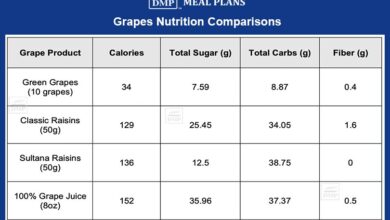
Why Tracking Works Even If Calorie Counts Are Off
Why tracking works even if calorie counts are off might sound counterintuitive, but the truth is, tracking your food intake can be incredibly valuable for your health and well-being, even if the calorie numbers aren’t always spot on. It’s not just about weight loss, it’s about gaining a deeper understanding of your eating habits, identifying potential food sensitivities, and making more informed choices that support your overall health goals.
Think of it like this: Imagine you’re trying to improve your running performance, but you only have a rough estimate of how far you’re running each day. You might be surprised to find that your perceived distance is quite different from the actual distance you’re covering.
Tracking your runs with a fitness tracker can help you get a more accurate picture of your progress and make adjustments to your training plan accordingly. The same concept applies to tracking your food intake. Even if the calorie counts aren’t always perfect, the act of tracking itself can provide valuable insights and empower you to make positive changes.
The Importance of Tracking: Why Tracking Works Even If Calorie Counts Are Off
Tracking your food intake can be a powerful tool for improving your health and well-being, even if calorie counts aren’t always perfectly accurate. It’s not just about weight loss; it’s about gaining a deeper understanding of your eating habits, identifying potential food sensitivities, and making more informed choices to support your overall health.
Understanding Eating Habits
Tracking your food intake can provide valuable insights into your eating patterns and habits. It allows you to identify areas where you might be overeating, undereating, or making unhealthy choices. By observing your food diary, you can see how your diet changes throughout the day, week, or month.
This awareness can help you identify triggers for unhealthy eating, such as stress, boredom, or social situations.
For example, if you notice that you tend to overeat during stressful times, you can develop strategies to manage stress in healthier ways, such as exercise or relaxation techniques.
Identifying Food Sensitivities
Tracking your food intake can also help you identify potential food sensitivities or intolerances. By keeping a record of what you eat and how you feel afterward, you can identify patterns between specific foods and symptoms like bloating, gas, diarrhea, or headaches.
This information can be valuable in working with a healthcare professional to determine if you have any food sensitivities and develop a personalized dietary plan.
Making Healthier Choices, Why tracking works even if calorie counts are off
Tracking your food intake can help you make healthier choices by providing a clear picture of your current dietary patterns. You can use this information to make gradual changes to your diet, such as increasing your intake of fruits, vegetables, and whole grains, or reducing your intake of processed foods, sugary drinks, and unhealthy fats.
For instance, if you notice that you’re consuming too much saturated fat, you can make conscious efforts to choose leaner protein sources and reduce your intake of fatty foods.
Final Wrap-Up

While calorie counting might not be the most precise science, the power of tracking lies in its ability to provide you with a clear picture of your eating habits, helping you identify patterns, make conscious choices, and ultimately achieve your health and wellness goals.
It’s not about perfection, it’s about progress. So, embrace the journey of tracking your food intake, even if the calorie counts aren’t always exact. You might be surprised by the valuable insights you gain along the way.
Tracking your progress isn’t about hitting exact calorie targets, it’s about establishing consistent habits. You might be surprised to learn that even if your calorie counts are off, you’re still likely to see results if you’re consistently tracking your workouts and making adjustments.
Just like it’s important to track your workouts, you might be wondering do I really need to cool down after a workout ? The answer is yes, and it’s just as important as tracking your calorie intake. Consistent tracking, even if it’s not perfectly accurate, helps you understand your body and adjust your approach accordingly, ultimately leading to a healthier lifestyle.
You might be surprised to learn that calorie tracking can still be helpful even if the numbers aren’t perfectly accurate. It’s all about consistency and awareness. For example, if you’re craving something like fried rice, you can still enjoy it with a healthier twist, like this 250 calorie chicken cauliflower fried rice recipe.
By tracking your meals, you’ll become more mindful of your portions and food choices, even if the exact calorie counts aren’t always spot on.
The magic of tracking isn’t about pinpoint accuracy, it’s about awareness. Even if your calorie counts aren’t perfect, the act of logging helps you understand your eating patterns. For some inspiration on delicious and manageable meals, check out these 5 classic Chinese recipes 500 calories make home.
Seeing your intake on paper, even with slight variations, empowers you to make informed choices and build healthier habits.






